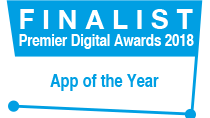
Reading The Bible
A session helping young people to think about why they should read the bible and helping them to explore how to do this effectively
Suitable For Ages 11 upwards (although projects are better for older teenagers to do)
Required: take-away sheets (attached), pens, paper, flip-chart, balloons, marker pens
Extra Files Needed (i.e. worksheets etc): Take-away sheet – click to download
Session Plan
Ice Breaker: Get the group to write down everything they know about the bible (content, history etc.) on a piece of paper
Ask: Ask the group if they think what’s written down is everything in the bible? Ask if anyone else said something they didn’t know about?
Explain: If we had got the entire congregation here and perhaps a few theologists and a few priests chances are that we’d have still missed out a lot of the bible, there’s probably loads missing from that list! The aim of this morning is not to discover the entire bible but for us to think about what it means to read the bible, and perhaps more importantly what it means to read it daily.
Explain: We’re not going to check up on you of take a survey of how often you read your bible, but we’re going to look at some ways of doing it and why we should.
Ask: Ask the group to think of reasons we read the bible.
(Ideas might be getting to know God, learning more, told to)
Explain: In Jesus day by the age of 10 Jewish boys would know the first five books of the bible off by heart, that is Genesis, Exodus, Leviticus, Numbers, Deuteronomy.
By the age of 13 the top students would have the entire Old Testament memorised.
Ask: What do you think of that? Do you think you could have managed it? Can you even name the books of the Old Testament?
Activity: Ask the group to name all 39 books of the Old Testament (or try), give them 39 Balloons and get them to write a OT book on each. (the books with 2 i.e. 1 kings, 2 kings count as 2 books)
Explain: It’s harder than it looks! The reason the people of the day learnt the entire Old Testament was because it was the rules they lived by and they didn’t own their own bibles, there was 1 per village if they were lucky!
When we read the bible though we learn more about God, we can read the things he’s done, the things Jesus tells us to do, have a deeper insight of his power and get to know him more.
Ask: Who here keeps a diary?
Explain: For example if I’d never met any of you but I’d read one of your diaries when I met that person I’d know more about them than I would if I hadn’t.
Another reason we should read the bible is that God speaks to us through it, I can think of times when I’ve flicked through the bible and read a passage randomly that relates exactly to something going on in my life, it’s like an answer to prayer!
You may like to give an example story
Bible: Ask the group to look at 2 Timothy 3:16-17
Ways To Read The Bible
Explain: Reading the bible is difficult! It’s easy to find other things to do, it’s easy to fill up our day without including God (everyone does it) so here are some tips to help you read your bible regually.
Use Resources
If you’re thinking of a particular issue youth bibles have a whole list of themes you can look up, it might help you with something going on in your life.
Reading Guides
If you wanted a daily reading there are a few things you can use to help.
The Bible In A Year – Some bibles have a yearly reading plan, or you can buy bibles set out into a yearly plan.
The Word For You – UCB do 2 free publications, one aimed at everyone and one aimed at young people, it contains a daily bible thought, alongside some passages to read, if you don’t have time for paper it’s even available to read on-line.
When Reading The Bible…
1.Choose a time when you’re not rushed or stressed, try and make it a regular habit (it only takes 3 weeks to form a habit)
2.Choose a place where you are relaxed and won’t be disturbed.
Ask the group to think of some ideal places
3.Begin by praying and ask God to speak to you through your reading
1.Don’t just switch off and let your mind wander!
When reading the bible…
Ask yourself: ‘What does this say? What does this mean?
How Should this affect me?
Ask: Ask the group if they have problems reading the bible, offer a chance to help them.
Prayer: End by praying appropriately, especially asking God to help the young people to read their bibles.
